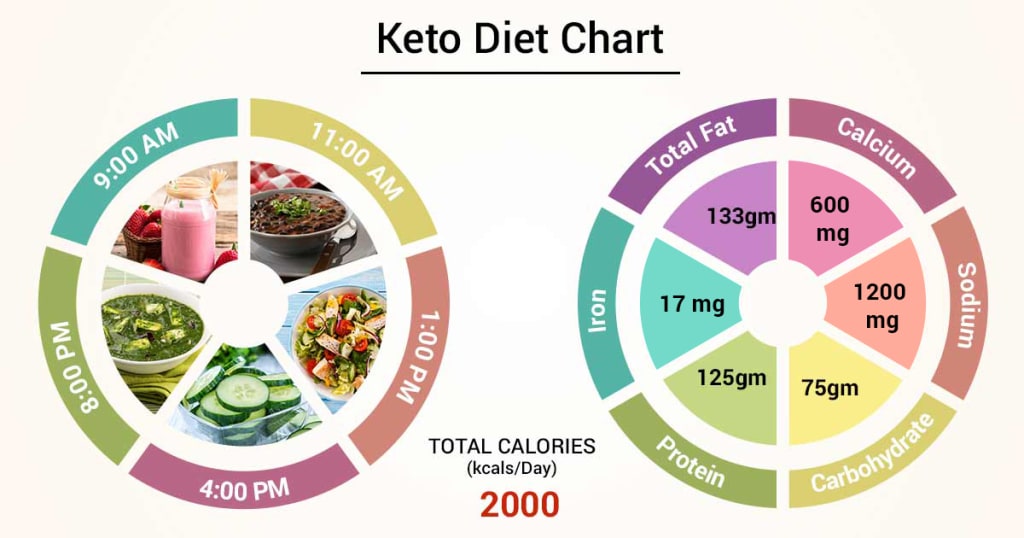
There are various types of diets that people follow for different reasons, including weight loss, health improvement, or addressing specific medical conditions. Here are some common types of diets:
Mediterranean Diet: This diet is inspired by the traditional eating patterns of countries bordering the Mediterranean Sea. It emphasizes whole, minimally processed foods such as fruits, vegetables, whole grains, legumes, nuts, seeds, olive oil, and moderate amounts of fish, poultry, and dairy products. Red meat and sweets are consumed in moderation.
Paleo Diet: The paleo diet aims to mimic the eating habits of early humans during the Paleolithic era. It focuses on whole foods, including lean meats, fish, fruits, vegetables, nuts, and seeds, while excluding processed foods, grains, legumes, dairy products, and added sugars.
Vegan Diet: Veganism is a lifestyle and dietary choice that excludes all animal products, including meat, fish, poultry, dairy, eggs, and honey. A vegan diet relies on plant-based foods such as fruits, vegetables, legumes, whole grains, nuts, and seeds.
Vegetarian Diet: Vegetarian diets eliminate meat but may include animal-derived products such as dairy, eggs, and honey. There are different types of vegetarian diets, including lacto-vegetarian (includes dairy), ovo-vegetarian (includes eggs), and lacto-ovo vegetarian (includes both dairy and eggs).
Flexitarian Diet: The flexitarian diet is a flexible approach that primarily focuses on plant-based foods but allows for occasional consumption of meat, fish, and poultry. It promotes a predominantly vegetarian diet while still allowing some flexibility for animal products.
DASH Diet: The Dietary Approaches to Stop Hypertension (DASH) diet is designed to lower blood pressure and promote heart health. It emphasizes fruits, vegetables, whole grains, lean proteins, and low-fat dairy products while limiting sodium, saturated fats, and added sugars.
Gluten-Free Diet: A gluten-free diet eliminates gluten, a protein found in wheat, barley, rye, and some other grains. It is essential for individuals with celiac disease or gluten sensitivity. Gluten-free alternatives, such as rice, quinoa, corn, and gluten-free grains, are consumed instead.
Low-FODMAP Diet: The low-FODMAP diet is often recommended for individuals with irritable bowel syndrome (IBS). It restricts certain carbohydrates that are poorly absorbed and can trigger digestive symptoms. The diet involves eliminating high-FODMAP foods, such as certain fruits, vegetables, dairy products, and grains, and gradually reintroducing them to identify specific triggers.
It's important to note that before starting any specific diet, it's advisable to consult with a healthcare professional or a registered dietitian to ensure it aligns with your individual needs, health goals, and any underlying medical conditions.
The ketogenic diet, commonly known as the keto diet, is a low-carbohydrate, high-fat diet that has gained popularity for its potential benefits in weight loss and overall health improvement. The primary goal of the keto diet is to shift the body's metabolism into a state called ketosis.
In a typical diet, carbohydrates are the main source of energy for the body. When you consume carbohydrates, your body breaks them down into glucose, which is then used as fuel for various bodily functions. However, on a keto diet, carbohydrate intake is significantly reduced, typically to less than 50 grams per day, or even lower.
With limited carbohydrate intake, the body begins to look for an alternative source of fuel. It turns to stored fat and dietary fat for energy. The liver converts fat into molecules called ketones, which can be used as a substitute fuel for the brain and other organs. This metabolic state is known as ketosis.
To achieve and maintain ketosis, a typical keto diet focuses on consuming high amounts of healthy fats, a moderate amount of protein, and a very low amount of carbohydrates. Healthy fat sources include avocados, nuts and seeds, olive oil, coconut oil, and fatty fish. Protein sources can include meat, poultry, fish, eggs, and tofu, but the intake is moderated to prevent excess protein conversion into glucose through a process called gluconeogenesis.
Carbohydrate-rich foods like grains, starchy vegetables, fruits, and sugary products are strictly limited or eliminated on the keto diet. Instead, low-carb vegetables such as leafy greens, broccoli, cauliflower, and zucchini are encouraged.
The primary benefits attributed to the keto diet include:
Weight loss: By reducing carbohydrate intake and increasing fat consumption, the body is encouraged to burn stored fat for energy, potentially leading to weight loss.
Appetite control: The high-fat and moderate-protein content of the diet can help promote satiety and reduce cravings, leading to a decrease in overall calorie consumption.
Blood sugar regulation: By minimizing carbohydrate intake, the keto diet may help stabilize blood sugar levels, making it potentially beneficial for individuals with type 2 diabetes or insulin resistance.
Mental clarity: Some people report improved mental focus and clarity when in ketosis, as ketones can serve as an efficient energy source for the brain.
Potential health benefits: The keto diet has been studied for its potential benefits in various health conditions, including epilepsy, polycystic ovary syndrome (PCOS), metabolic syndrome, and some neurological disorders. However, further research is still needed to establish its efficacy in these areas.
It's important to note that the keto diet is not suitable for everyone. Individuals with certain medical conditions, such as pancreatic or liver disease, or those taking specific medications should consult with a healthcare professional before starting the diet. Additionally, it's essential to ensure adequate nutrient intake and maintain a balanced diet while following the keto approach.
Here's an example of a 7-day keto meal plan:
Day 1:
Breakfast: Bacon and eggs cooked in butter with avocado slices
Lunch: Grilled chicken salad with mixed greens, cherry tomatoes, cucumber, and olive oil dressing
Snack: String cheese or a handful of almonds
Dinner: Grilled salmon with roasted broccoli and cauliflower
Day 2:
Breakfast: Keto pancakes made with almond flour, topped with sugar-free whipped cream and berries
Lunch: Tuna salad with celery, red onion, and mayo wrapped in lettuce leaves
Snack: Sliced bell peppers with guacamole dip
Dinner: Grilled steak with roasted Brussels sprouts and cauliflower rice
Day 3:
Breakfast: Keto-friendly smoothie with coconut milk, spinach, almond butter, and chia seeds
Lunch: Egg salad with mayo, celery, and diced bell pepper served in a lettuce wrap
Snack: Hard-boiled eggs
Dinner: Keto lasagna made with zucchini noodles and ground beef
Day 4:
Breakfast: Keto omelet with spinach, feta cheese, and avocado
Lunch: Grilled chicken with roasted asparagus and mixed greens salad with olive oil dressing
Snack: Beef jerky or pork rinds
Dinner: Baked salmon with roasted Brussels sprouts and cauliflower mash
Day 5:
Breakfast: Scrambled eggs cooked in coconut oil with bacon and sliced avocado
Lunch: Shrimp salad with mixed greens, cherry tomatoes, and cucumber with olive oil dressing
Snack: Celery sticks with almond butter
Dinner: Grilled chicken skewers with zucchini and bell pepper, served with cauliflower rice
Day 6:
Breakfast: Keto-friendly yogurt with chia seeds, sliced strawberries, and walnuts
Lunch: Turkey and cheese roll-ups with sliced avocado and cucumber
Snack: Sliced cheese with olives
Dinner: Baked pork chops with roasted asparagus and side salad with olive oil dressing
Day 7:
Breakfast: Keto breakfast sandwich made with a low-carb muffin, egg, bacon, and cheese
Lunch: Tuna-stuffed avocado halves with cherry tomatoes
Snack: Keto chocolate mousse made with heavy cream, cocoa powder, and stevia
Dinner: Grilled steak with roasted mushrooms and zucchini noodles
It's important to note that this meal plan is just an example and may not be suitable for everyone. It's important to consult with a healthcare professional or a registered dietitian before starting any new diet to ensure it aligns with your individual needs and health goals.
Do you want to know more?... Click https://www.digistore24.com/redir/283755/Shade79/
About the Creator
MOHD AQSHA BIN SAUBIN
#Well done better than well said






Comments
There are no comments for this story
Be the first to respond and start the conversation.